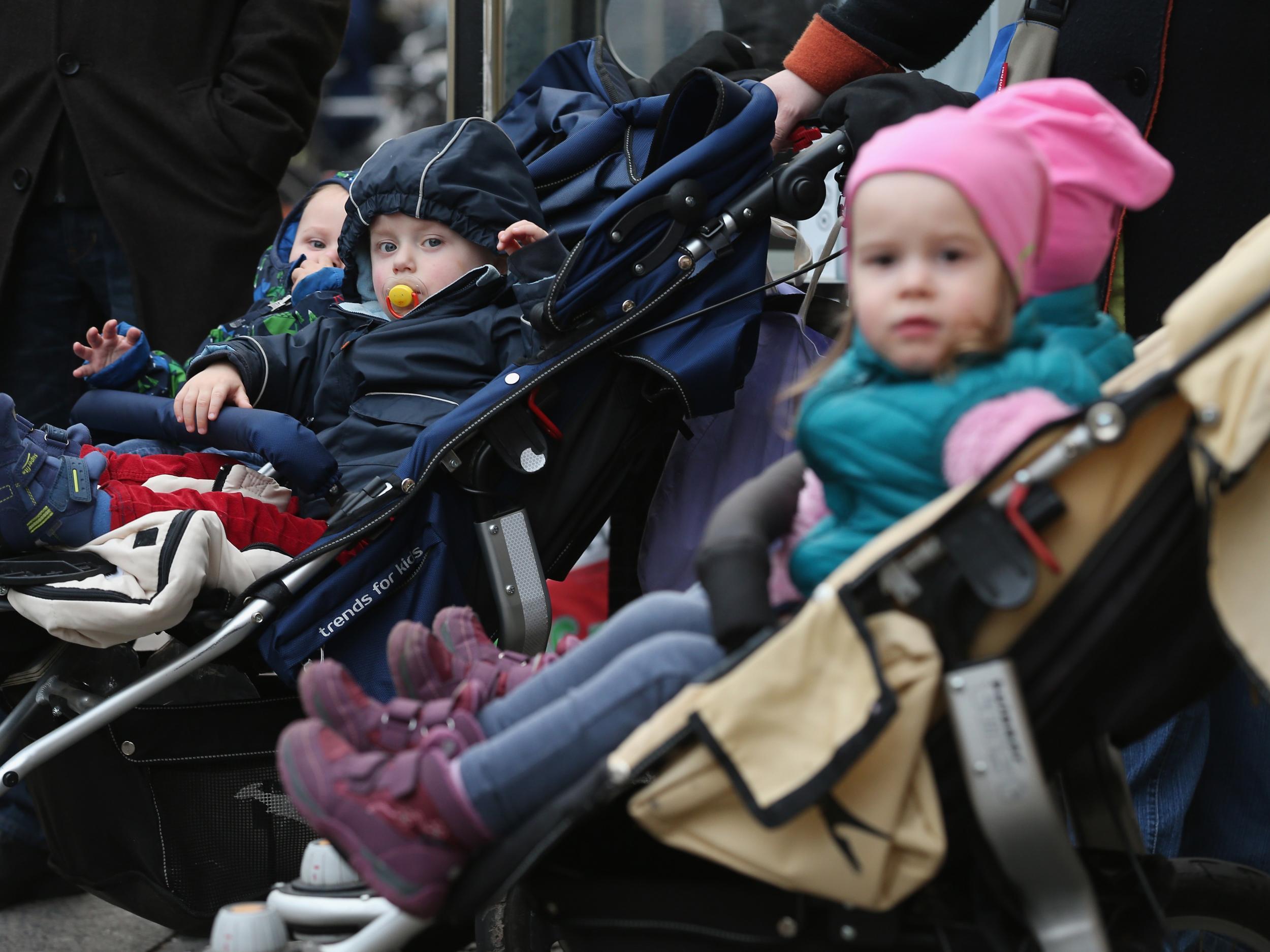Germany's birthrate hits 33-year high after arrival of 900,000 refugees
Germany has one of the lowest fertility rates in the world

Your support helps us to tell the story
From reproductive rights to climate change to Big Tech, The Independent is on the ground when the story is developing. Whether it's investigating the financials of Elon Musk's pro-Trump PAC or producing our latest documentary, 'The A Word', which shines a light on the American women fighting for reproductive rights, we know how important it is to parse out the facts from the messaging.
At such a critical moment in US history, we need reporters on the ground. Your donation allows us to keep sending journalists to speak to both sides of the story.
The Independent is trusted by Americans across the entire political spectrum. And unlike many other quality news outlets, we choose not to lock Americans out of our reporting and analysis with paywalls. We believe quality journalism should be available to everyone, paid for by those who can afford it.
Your support makes all the difference.An influx of refugees last year helped boost Germany’s birthrate to its highest level in 33 years, according to data released by the country's Federal Statistics Office.
Germany has long struggled with an ageing population – a consequence of having one of the lowest birthrates in the world. Just under a third of people in the country are 60 years old or over, making it the second most aged population after that of Japan.
But in 2015, the rate was 1.5 births for every woman, an increase on the 1.47 births a year before. It is now at its highest rate since 1982 – when it was 1.51.
The government has attempted to bolster the birthrate in the country through introducing family friendly policies, but it remains far short of the 2.0 rate needed to ensure the population replenishes itself.
Almost 900,000 refugees sought asylum in Germany in 2015, with some 70 per cent of them Muslim, according to Reuters. Muslim families tend to be larger than secular European-born citizens – one reason why the influx of refugees has helped increase the average number of children.
Stephan Sievert, Head of the Department for Migration and Labour market at the Berlin Institute for Population and Development told The Independent the increased rate was promising for the German economy.
“More children is better than fewer children," he said, "The low birth rate makes financing our social security less stable."
He added that the “large majority” of the rise was driven by births to foreign-born women.
Among migrant women alone, the birthrate was 1.95 – up from 1.86 in 2014 – an increase which Mr Sievert described as "quite a jump".
"That change is quite considerable. It doesn't happen for no reason and it's not surprising if you look at the level of immigration."
There was an increase in the average number of children among German women – but it was much less significant – rising 0.01 per cent on the year before.
This change is likely the effect of German policies to encourage people to have more children, such as creating more nursery places and increasing maternity leave pay.
Such policies had been criticised for not working. For example, a "parents allowance" introduced in 2007 that cost the country billions produced only questionable results.
Yet Mr Sievert said government policies are working, but changing a family model cannot happen overnight.
"Most demographers never expected the birth rate to jump. It’s a matter of social norms, which are very hard to change
"I think [they will work] in the long run, although you always hope for quick response."
Ms Merkel's favourability among German's plummeted last year after she introduced an open door policy to refugees.
Join our commenting forum
Join thought-provoking conversations, follow other Independent readers and see their replies
Comments